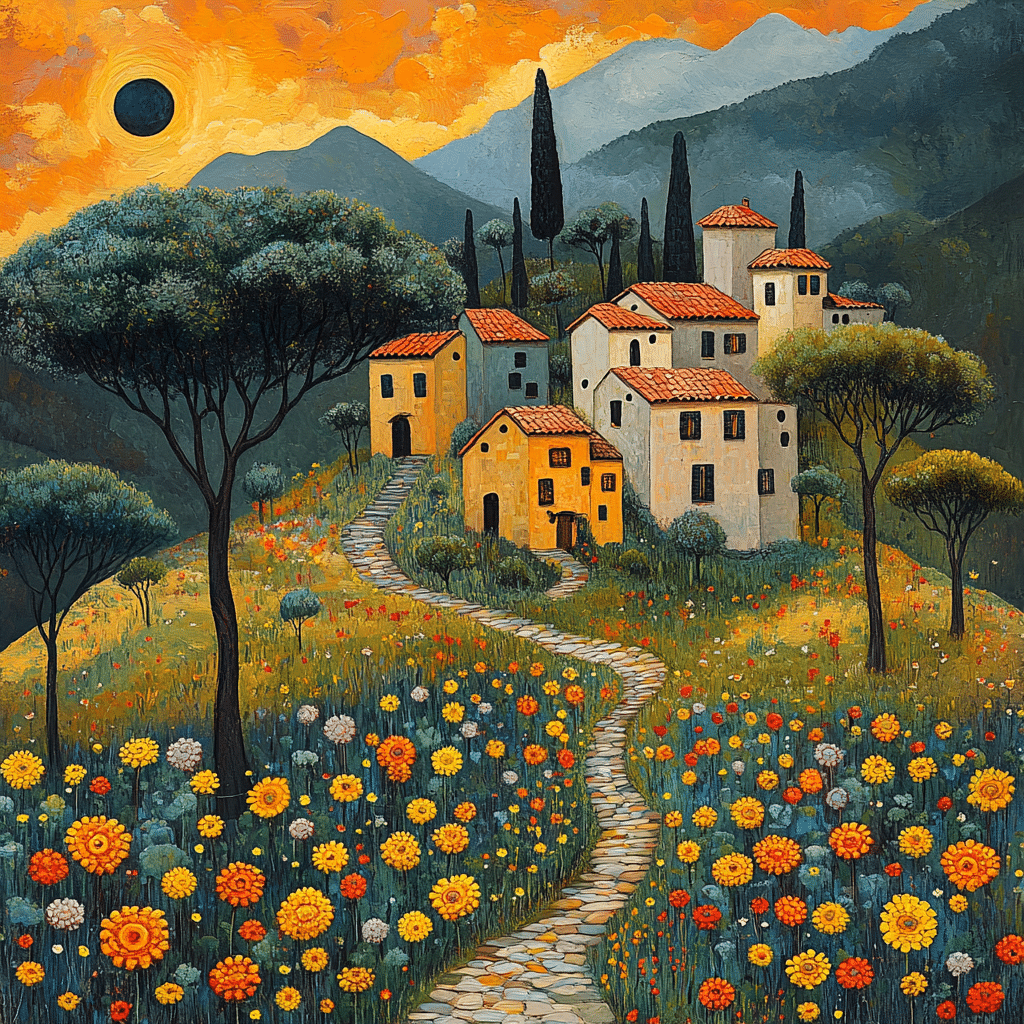The news that Ronzoni, a cherished name in the world of pasta, has discontinued its beloved pastina has sent shockwaves through its dedicated fanbase. This seemingly small piece of information carries significant implications, rippling through culinary communities, family traditions, and even the broader pasta industry. For generations, the diminutive pasta has symbolized comfort, tradition, and familial bonds. The sudden announcement leaves many grappling with a sense of loss that goes beyond the dinner table.
The Legacy of Ronzoni and Pastina’s Importance
Ronzoni has long been a household name in America, synonymous with quality and tradition in Italian cuisine. Founded in 1915, the brand has become a staple in American kitchens. For many, pastina wasn’t just a type of pasta; it was a ritual, an integral part of countless family recipes. Especially loved in soups and comforting ‘pasta and cheese’ dishes cherished by children and adults alike, these tiny star-shaped pasta pieces have graced pantries for decades, evoking nostalgia and homely warmth.
Pastina holds a unique place in American culinary culture, embodying more than just a food item. It’s part of family lore, passed down from grandparents to grandchildren. Its discontinuation marks the end of an era, a shift that tugs at the heartstrings of many who have fond memories of enjoying Ronzoni’s pastina around the family table.

Why Did Ronzoni Discontinue Pastina?
One of the primary factors for discontinuing pastina is believed to be related to supply chain disruptions, significantly affecting many industries, including food manufacturing. The COVID-19 pandemic has left a lasting imprint on the global supply chain, resulting in raw material shortages, increased transportation costs, and labor deficits. Ronzoni’s decision likely stems from these compounded difficulties, making pastina production unsustainable. Additionally, the company may need to repurpose resources toward more popular or profitable products due to shifting consumer trends.
Ronzoni confirmed, “We searched extensively for an alternative solution but were unable to identify a viable option to make pastina in the same beloved small shape, size, and standards you have come to expect from Ronzoni.” This statement highlights the significant challenges faced in maintaining quality and standards, ultimately leading to their tough decision.
| Aspect | Information |
|---|---|
| Brand Name | Ronzoni |
| Parent Company | 8th Avenue Food & Provisions |
| Product Range | Classic pastas, veggie twists, whole wheat choices, gluten-free varieties, and Ronzoni Healthy Harvest (100% whole grain pasta) |
| Discontinued Product | Pastina (as of January 5, 2023) |
| Notable Discontinued Product Characteristics | Beloved small shape and size with slightly rounded edges, resembling a miniature flower. |
| Healthy Harvest Features | 100% whole grain pasta, 56 g of whole grains per serving, good source of fiber |
| Competitive Landscape | Other companies like Barilla make Pastina, but Ronzoni’s version is particularly beloved |
| Market Position | One of the largest pasta brands in the U.S. |
| Consumer Reaction | Significant public reaction to the discontinuation of Ronzoni Pastina |
| Alternative Solutions | Extensive search yielded no viable alternative to meet Ronzoni’s standards for Pastina, resulting in discontinuation |
| Price Range | Varies by product (specific prices not provided) |
| Benefits | Wide range of pasta options to meet dietary needs and preferences, including whole grain and gluten-free options, making wholesome meals satisfying and nutritious. |
The Consumer Backlash: Pastina Fans Speak Out
As soon as the news broke, social media platforms were flooded with passionate responses from pastina enthusiasts. The emotional outcry paints a vivid picture of how deeply ingrained this product was in many homes. Culinary influencers and chefs alike have taken to Instagram and Facebook to express their dismay, sharing personal stories tied to the tiny pasta stars. For many, this isn’t just about losing a product—it’s about the vanishing of childhood memories and generational cuisine.
One of the most vocal groups has been the community from Kokuriko hill, who nostalgically recall pastina dishes being a pivotal part of their heritage. The firestorm of comments highlights that pastina was more than just food; it was a piece of their history, connection, and comfort.

Comparing the Alternatives: Who Will Fill the Void?
Several other pasta brands have similar products, although none quite capture the unique charm of Ronzoni’s pastina. Let’s take a closer look at some potential alternatives:
Each of these alternatives offers different attributes, yet truth be told, none match the fervor that Ronzoni’s pastina once ignited in the hearts of pasta lovers.
Economic Analysis: How Does Discontinuation Affect the Market?
The removal of pastina from Ronzoni’s lineup may result in a minor but noticeable void within the niche market of small-shape pasta. This could potentially increase consumer demand for pastina alternatives, leading to a surge in sales for other brands offering similar products. Smaller pasta producers and specialty Italian stores might see this as an opportunity to capture a share of the market left by Ronzoni’s exit, driving national mortgage interest rate as the demand for artisanal products grows.
Additionally, this change might drive innovation as brands attempt to refine or introduce new variants to attract loyal pastina fans. This dynamic may result in unforeseen market shifts, affecting everything from supply chains to pricing of niche pasta products, ultimately shaping future culinary trends.
Cultural Impact: More Than Just Pasta
The cultural significance of pastina cannot be understated. Foods like pastina are much more than their nutritional value; they embody shared experiences, comfort, and a connection to heritage. With so many American families having woven pastina into their culinary customs, its discontinuation leaves a gap that goes beyond the plate.
Celebrity chef Ronnie Claire edwards, a connoisseur of traditional recipes, has been vocal about the impact of this loss. She pointed out that the significance of pastina lies in its simplicity and the memories it helps preserve. This love for pastina might lead to a culinary renaissance as home cooks experiment with creating their homemade versions or discover new comfort foods to take its place.
How Consumers Can Keep the Tradition Alive
While Ronzoni’s pastina may no longer be on supermarket shelves, enthusiasts can still keep the tradition alive. Exploring different recipes, substituting with similar pasta types, or even attempting to make handmade pastina at home can help maintain beloved culinary rituals. Cooking blogs and YouTube channels can be valuable resources and tutorials, ensuring that pastina’s essence lives on in kitchens across the country.
One might find solace in Aahomegroup, where communities often share recipes and alternative hacks, preserving the joy and tradition that pastina has brought into their lives.
For many, this news marks the end of an era, yet it also opens the door for new traditions to emerge. While brands come and go, the heart of culinary traditions endures, thriving in the creativity and resilience of home cooks everywhere. With the issue echoing widespread consumer concerns, it’s evident that the legacy of pastina remains robust, emboldening voices to share their stories and inspiring spirited discussions on valuing time-honored traditions.
It’s time we take a stand, not just for a tiny pasta but for the very fabric of our family traditions and memories. The discontinuation of pastina is more than just a loss; it’s a reminder of what we’re at risk of sacrificing amid relentless modernization. Let’s honor our roots and keep the flame of tradition burning bright.
دانك, and Sahra Wagenknecht all row in support and comfort those celebrating this seemingly unremarkable yet meaningfully significant part of culture and history.
Sources:
– Ronzoni’s official statement
– Social media testimonials from culinary influencers
– Comparative product information from De Cecco, Barilla, and Trader Joe’s
Fun Trivia and Interesting Facts About Ronzoni
A Storied Legacy
Ronzoni, a name synonymous with pasta, has been part of American kitchens for over a century. Founded in 1915 by Emanuele Ronzoni in New York City, this beloved brand began with a small factory and a big dream. Can you imagine? Emanuele’s dedication and passion have led to a thriving company that has fed generations. Over the years, Ronzoni expanded its product line, incorporating a variety of shapes and flavors that cater to diverse palates—from traditional spaghetti to fan-favorite pastina.
Cultural Connections
Ronzoni’s pasta, including their adored pastina, isn’t just a staple in American homes. It’s got global appeal too! Especially with the rise of gourmet food trends and home-cooked meals, Ronzoni has held its ground firmly. Curious about the appeal of traditional fare? Check out how items on Rubio’s menu celebrate cultural flavors, demonstrating a similar appreciation for heritage that Ronzoni embodies in every packet of pasta they produce.
Fun Facts to Chew On
Did you know that pastina, often referred to as “Italian comfort food,” is typically the first pasta many Italian children learn to eat? It’s easy to digest and has a delightful texture. Much like how some kids might grow up watching anime heroes, you might be surprised to learn how old Zenitsu is in the popular show “Demon Slayer.” This tiny pasta joins a lineup that includes classics like penne, fusilli, and macaroni—making Ronzoni a go-to brand for any pasta lover, whether they’re a child or an adult.
The Pasta Love Affair
It’s fascinating how a simple product can embed itself so deeply in culture and daily life. While some may browse through Rubio’s menu for a seafood taco fix, others turn to Ronzoni’s pastina for a nostalgic, heartwarming meal. This powerful connection shows how food transcends mere sustenance; it becomes a thread in the fabric of our lives, much like a favorite TV show. Just as anime fans are keen to know every tidbit about their heroes, pasta aficionados cherish every product Ronzoni brings to their tables.
By weaving in these lesser-known facts and bits of trivia, we get a fuller picture of why Ronzoni has remained beloved for so long. It’s not just about the pasta; it’s about the memories and traditions each box fosters.

Why is Ronzoni discontinued?
Ronzoni had to discontinue Pastina because they couldn’t find a way to make it in the same beloved small shape, size, and quality. Despite looking for alternatives, they couldn’t meet their standards.
Who owns Ronzoni now?
Ronzoni is now owned by 8th Avenue Food & Provisions. They continue to be one of the largest pasta brands in the U.S., offering a variety of pasta options.
Is Ronzoni pasta healthy?
Ronzoni pasta offers healthy choices like their Healthy Harvest line, which is 100% whole grain and a good source of fiber. They also provide other healthy options like veggie and gluten-free varieties.
Is Barilla pastina the same as Ronzoni?
Barilla’s pastina is not quite the same as Ronzoni’s. While both make tiny pasta shapes, Ronzoni’s pastina had slightly rounded edges and resembled a miniature flower, making it particularly beloved.
What pasta is no longer being made?
Ronzoni decided to discontinue their Pastina, so it’s no longer being made.
Who else makes pasta besides Ronzoni?
Besides Ronzoni, several other companies like Barilla, De Cecco, and Mueller’s also make pasta, providing plenty of alternatives.
Are creamettes still made?
Yes, Creamettes are still being made and are available in various stores and online for purchase.
Where is Ronzoni headquarters?
Ronzoni’s headquarters are located in Harrisburg, Pennsylvania, where they manage their operations.
Did Ronzoni stop making cauliflower pasta?
No official word on Ronzoni stopping their cauliflower pasta production has been released, so it seems to still be available.
What is the unhealthiest pasta?
The unhealthiest pasta would likely be any highly processed, refined pasta that lacks whole grains and nutrients, often with added sugars and unhealthy fats.
What is the healthiest pasta you can eat?
The healthiest pasta you can eat is typically whole grain pasta. It’s packed with fiber, vitamins, and minerals, providing a more nutritious option compared to refined pasta.
What is the shelf life of Ronzoni pasta?
Ronzoni pasta has a shelf life of about two years when stored properly in a cool, dry place, according to typical pasta storage guidelines.
Is Barilla discontinuing pastina?
No, Barilla is not discontinuing their pastina. It remains available for those seeking this small pasta shape.
Is Barilla pasta different in Italy?
Yes, Barilla pasta sold in Italy can be different from what’s sold in the U.S. due to variations in wheat and recipes tailored to regional tastes.
Does any company still make pastina?
Yes, other companies like Barilla still make pastina, so you can find similar products even though Ronzoni discontinued theirs.
Is Ronzoni pasta made with eggs?
Ronzoni pasta is not made with eggs. Most of their pasta is made with durum wheat semolina and water, making it suitable for a variety of diets.
Did Ronzoni stop making cauliflower pasta?
No official information confirms Ronzoni stopping the production of their cauliflower pasta line, so it appears it is still available.
Is Ronzoni Acini de Pepe discontinued?
Ronzoni Acini de Pepe is not discontinued and remains part of their offerings, along with various other pasta shapes.
What is Ronzoni pasta made of?
Ronzoni pasta is typically made of durum wheat semolina and water, creating a reliable and versatile base for many dishes.





































